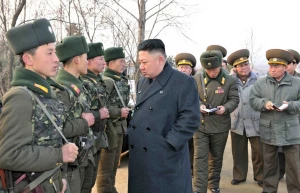
Military expert Zgurets addresses claims of 'manipulation' in WWII-era mine report
Defense Express CEO Serhiy Zgurets spoke with the head of the Defense Procurement Agency (DPA) following public resonance surrounding a publication on mines
He stated this on the Espreso TV channel.
“Yesterday, we had a rather lengthy and productive conversation with Maryna Bezrukova, head of the DPA. I thought we understood each other. However, today, the DPA’s publication mentions manipulative elements in my article,” Zgurets said.
Speaking about mines, he emphasized the need to start with the state-level approach, then move to the Defense Procurement Agency, and finally to the contracts themselves, pointing out that no comprehensive state strategy exists in this area.
“We urgently need anti-tank and anti-personnel mines. The government leadership became aware of this back when fortifications were being built, realizing that the demand for mines amounts to millions. However, no state program for domestic production of anti-personnel mines has been established,” Zgurets noted.
The DPA procures weaponry guided by the principle of cost-effective use of funds. They claim to have the ability to reserve weapons without financial obligations, including mines from World War II. This raises the question: were newer mines similarly reserved with other manufacturers?
“After yesterday’s conversation, I was told the Agency has contracts with direct mine manufacturers. However, an internal review revealed that Ukraine is purchasing mines through intermediaries, not direct contracts with manufacturers. Moreover, it’s possible that newer mines exist compared to the ones currently being procured. There are several Asian countries with mine stockpiles that could be purchased if our special exporters worked on these markets. They are working, but no attempts have been made to buy newer, cheaper mines through the Agency,” Zgurets explained.
World War II-era mines cost around €590 per unit, whereas newer mines cost approximately €700 or more. Yet, Ukraine continues to purchase the older mines stored in warehouses, as the DPA claims. This may be true because no other buyers can be found for such mines, Zgurets added.
“In one publication, we wrote about offers for similar types of mines from other intermediaries at lower prices. In response, I was told yesterday that no such offers existed. However, according to our information, such offers were made. For some reason, by the end of the year, contracts were signed for mines at a higher price, justified as an urgent need for the Armed Forces. These mines were needed two years ago. It’s necessary to determine whether there were manipulations in the publications, what the price should have been, and why this happened,” he explained.
Regarding an attempt to bribe the Espreso editorial staff, the Defense Procurement Agency denies involvement and has contacted law enforcement authorities. However, the fact that old mines are being procured at the highest price demonstrates the low efficiency of the arms procurement system. Zgurets believes that a change in the Agency’s leadership might not resolve the issue, though he hopes the supervisory board will improve the Agency’s efficiency.
“We need to create a state program for producing anti-personnel and anti-tank mines. We buy TNT, which could supply us with mines, and that’s what we should be doing. The situation surrounding the Defense Procurement Agency appears critical, but it’s important that all criticism is based on objective facts rather than manipulations,” the military expert concluded.
- Military expert Serhiy Zgurets published an article stating that the Defense Procurement Agency had signed a contract to purchase hundreds of thousands of M6A2 anti-tank mines, manufactured in 1941 or later, at around €600 per unit. The total contract amount exceeds €200 million.
- After the publication, financial compensation offers were made through intermediaries to remove the article from the site.
- The Defense Procurement Agency officially requested Espreso to provide evidence of the alleged financial offers from one of the advertising agencies to delete Zgurets’ article.
- In response, Espreso denied claims that Zgurets’ information on the procurement of World War II-era anti-tank mines was inaccurate.
- News














































